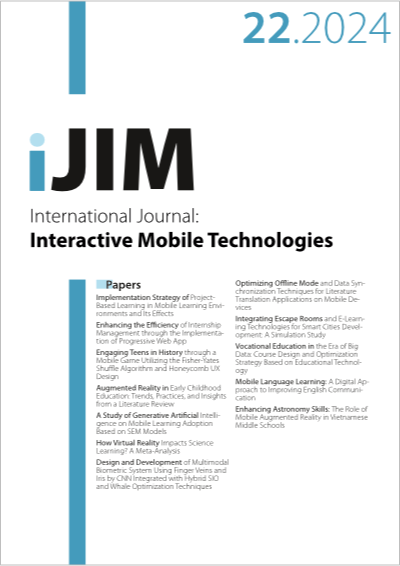How Virtual Reality Impacts Science Learning? A Meta-Analysis
DOI:
https://doi.org/10.3991/ijim.v18i22.49989Keywords:
meta-analysis, Science learning, Virtual realityAbstract
In recent years, virtual reality (VR) has gained popularity in aiding science education. There are variations in the results reported by the researchers on the effect of VR on student learning outcomes. This study aims to map the results of studies using VR on student science learning outcomes through meta-analysis. In addition, studies were also analyzed on the effects of years of publication, education levels, learning subjects, continents, immersive levels, and time of use of VR. There are 24 articles from international journals that deserve to be analyzed in the 2014–2023 period. The data were analyzed using Excel and JASP applications by presenting results in size effect values, forest plots, and published bias tests. The analysis showed that VR science learning improved learning outcomes compared to conventional learning. Analysis of moderator variables showed no significant effect at the level of education and time of use of VR. However, in education, the year of publication, the continent, and the immersive level showed a significant influence. These findings confirm that VR is an efficient technology that improves students’ science learning outcomes. In further research, other researchers can investigate VR related to the teacher’s role as a tutor or instructor, pedagogical approaches in VR, types of VR devices, and students’ technological skills in using virtual reality.
Downloads
Published
How to Cite
Issue
Section
License
Copyright (c) 2024 Muhammad Dhanil, Fatni Mufit

This work is licensed under a Creative Commons Attribution 4.0 International License.



